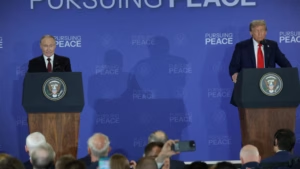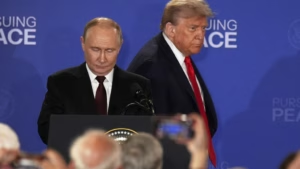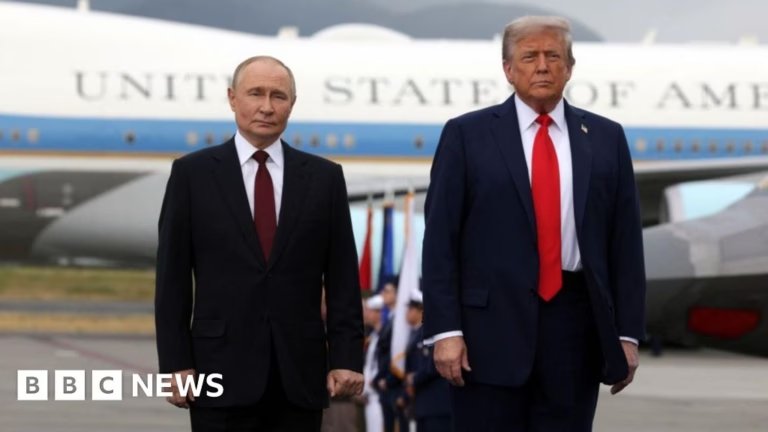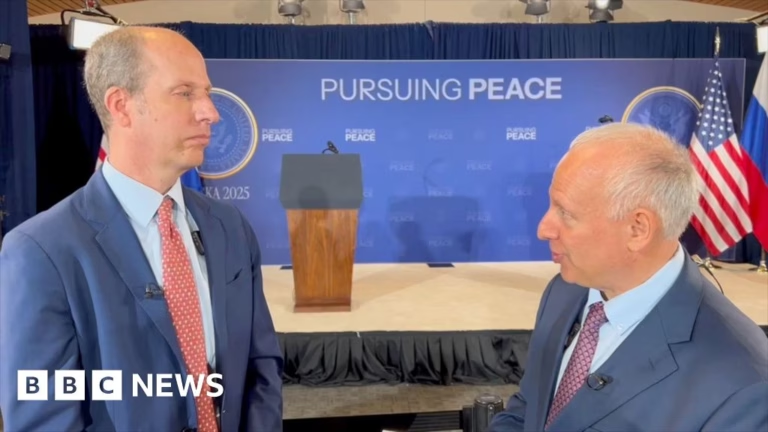BBC News

Getty Images
US President Donald Trump’s administration is “actively looking at” suspending habeas corpus. This legal principle asserts that a person should be able to challenge their detention in court.
Stephen Miller, the White House deputy chief of staff, suggests that habeas corpus is a “privilege” that might be suspended to facilitate the detention and deportation of immigrants.
Recent court challenges by migrants and dissenting students held in immigration detention centers have cited habeas corpus as justification for their release.
Understanding the legal procedure – and the implications of suspending it – is complex.
What does habeas corpus mean?
Scholars argue that the principle that a person should not be imprisoned without proper legal justification predates the Magna Carta and is a cornerstone of the legal systems in the UK, US, and other democratic nations.
Habeas corpus, known as the “Great Writ of Liberty,” allows prisoners to contest their imprisonment in a court.
Is habeas corpus a right in the US Constitution?
Article One of the US Constitution states that “the privilege of the writ of habeas corpus shall not be suspended, unless when in cases of rebellion or invasion the public safety may require it.”
While this is the only mention of habeas corpus in the Constitution, the concept has become a central element of US law, frequently debated in the courts, including the US Supreme Court.
Has habeas corpus been suspended before?
Abraham Lincoln was the first US president to suspend habeas corpus in 1861, during the American Civil War, which led to a conflict with Chief Justice Roger Taney over who had the authority to suspend the writ.
Lincoln continued to suspend habeas corpus in specific cases, and in 1863, Congress approved its suspension for the duration of the war. After the Civil War, habeas corpus was suspended several times to suppress the Ku Klux Klan’s rebellions.
Following the bombing of Pearl Harbour during World War Two, habeas corpus was suspended in Hawaii, which led to the arrest of Japanese Americans.
What do modern courts say about habeas corpus?
Courts have upheld that both US citizens and non-citizens have the right to habeas corpus. In 2008, the US Supreme Court extended this to non-citizens detained in foreign prisons, such as Guantanamo Bay.
However, succeeding with a habeas corpus petition is very rare, as most detentions are lawful, according to court findings.
Asadullah Haroon Gul was the first Guantanamo detainee to win a habeas corpus petition in 2021, and was subsequently transferred back to Afghanistan more than a decade later.
With the Trump administration’s increased enforcement of laws relating to undocumented immigrants and student dissidents, habeas corpus has gained renewed legal attention.
In April, the Supreme Court ruled that migrants facing deportation under Trump’s Alien Enemies Act must receive enough notice to file petitions, temporarily blocking some deportations in Texas.
Columbia University graduate student Mahmoud Khalil, a prominent figure in pro-Palestinian campus protests, has also filed a habeas corpus petition amid his deportation hearings.









